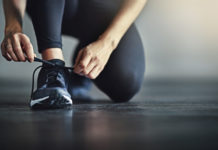The doctors are saying it and so is the World Health Organization (WHO) and the U.S. Centers for Disease Control and Prevention (CDC). Face masks can slow the spread of the Coronavirus that is referred to as COVID-19. There is a great divide among people who either accept or reject the effectiveness of wearing a face mask. This undoubtedly stems from conflicting messages at the beginning of the global pandemic.
The truth is, face masks slow the spread. Combined with preventative measures like social distancing (keeping six feet away from people), keeping hands away from eyes, nose and mouth, plus frequent hand-washing with soap and warm water, wearing a mask significantly lessens an individual’s chance of contracting the virus.
Why Weren’t Face Masks Recommended at the Beginning?
This is a great question. The simple answer is that we didn’t know what we didn’t know. Health experts could only make calculated recommendations based on the data they had and compare it to previous strains of the Coronavirus. There was virtually no data that could pinpoint how quickly it could spread. Coupled with a 14-day incubation period and virus carriers who showed mild to no signs of illness, this strain was, and still is, a mystery to many.
As the virus progressed and traveled quickly around the globe, more testing and data was accumulated to make sound recommendations for the public’s health interest. These discoveries determined that face masks are effective in slowing the spread, especially in urban or more crowded locations simply because that extra barrier of protection prevents the mucus or saliva droplets from spewing out.
Let’s say that Person A has COVID-19 but does not know it. They wear a mask even though they show no symptoms of illness. They are helping to prevent the spread of the virus to others within that 14-day incubation period. Now imagine how many people could potentially contract the virus if a face mask is not worn, especially if Person A is on mass transit, shopping, or generally out in public.
With New Discoveries Come New Recommendations
New recommendations often follow new discoveries. While that seems like common sense, there is a lot of push back against new guidance. Why? It is very easy to speculate but at the end of the day, accepting or rejecting the latest set of guidelines is an individual’s choice.
To date, the WHO and CDC now recommend using face masks to slow the spread of the virus. Additionally, the CDC recommends cloth masks for the general public, not the surgical or N95 masks used by healthcare providers and first responders.
Three Types of Face Masks
There are several types of face masks on the market but here are the top three: surgical masks, N95, and cloth face coverings. All three are effective at shielding others from large, virus-carrying droplets. Here is an overview of each.
Surgical Masks
Often called medical masks, surgical masks are disposable and loose-fitting. They are designed to cover the nose and mouth of the wearer. It reduces the chance of spreading respiratory secretions and saliva. These masks have not been recommended by the U.S. Food and Drug Administration (FDA) for protection against COVID-19 but it is still a barrier between its wearer and the public.
N95 Masks
The N95 mask is a type of respirator that offers more protection than surgical masks because it fits tighter to the face and includes filters that can prevent large and smaller droplets from passing through to the wearer. For these masks to be effective, they must be worn properly and possess the proper seal. It is vitally important to note the filters only work one way. If the wearer is COVID-19 positive, they can still spread the virus because exhaling air is unfiltered.
Cloth Masks
Cloth masks are the most utilized and recommended type of face mask for a variety of reasons. Many are homemade or customized much like t-shirts. There are plenty of DIY patterns for crafty people to make their own and they are washable. Some people are not as crafty with a sewing machine but cloth masks could be as simple as a bandana or using a wide strip from an old t-shirt tied around one’s head.
The point of face masks is to shield each other while protecting one’s self from virus-carrying droplets. And because of the incubation period or the chance that COVID-19 carriers are unaware they are contagious, wearing a mask when out in public does a service for its wearer and the community. Stay safe. Wear a mask.
Face Mask Tips
Now that we know the WHO and CDC recommends wearing a face mask when in public settings or near people when social distancing is difficult, here are some tips to stay safe and lower the chances of contracting COVID-19.
- Wash hands with soap and warm water prior to putting the mask.
- Make sure the face mask covers the nose and mouth.
- The mask should fit snugly to keep it in place.
- Do not touch the mask while it is being worn unless it is being put on or taken off.
- Prevent touching the front of the mask. If that happens, wash or sanitize hands to prevent cross-contamination or potential virus spread.
- As the mask gets dirty or wet, replace with a clean, dry one.
- If out and about and the face mask gets wet or dirty, store it in a sealable bag until it can be laundered.
- Regularly wash hands with soap and warm water. One trick is to sing the alphabet song twice while washing for maximum effectiveness.
- Homemade masks may be hand washed or laundered with other clothes.
Face Mask Precautions
- Do not place face masks on anyone who is unconscious, has trouble breathing, or otherwise unable to remove their mask themselves.
- Do not put masks on children under two years old as this may be a choking hazard.
- Do not replace masks for social distancing. Staying six feet apart from strangers or people outside of one’s household is still the best practice.
Face masks are not ideal but these are the times we live in. Until more research is done to prevent, treat or eradicate COVID-19, more guidelines may be forthcoming. In the meantime, keep a higher standard for personal hygiene and wear the mask.

















